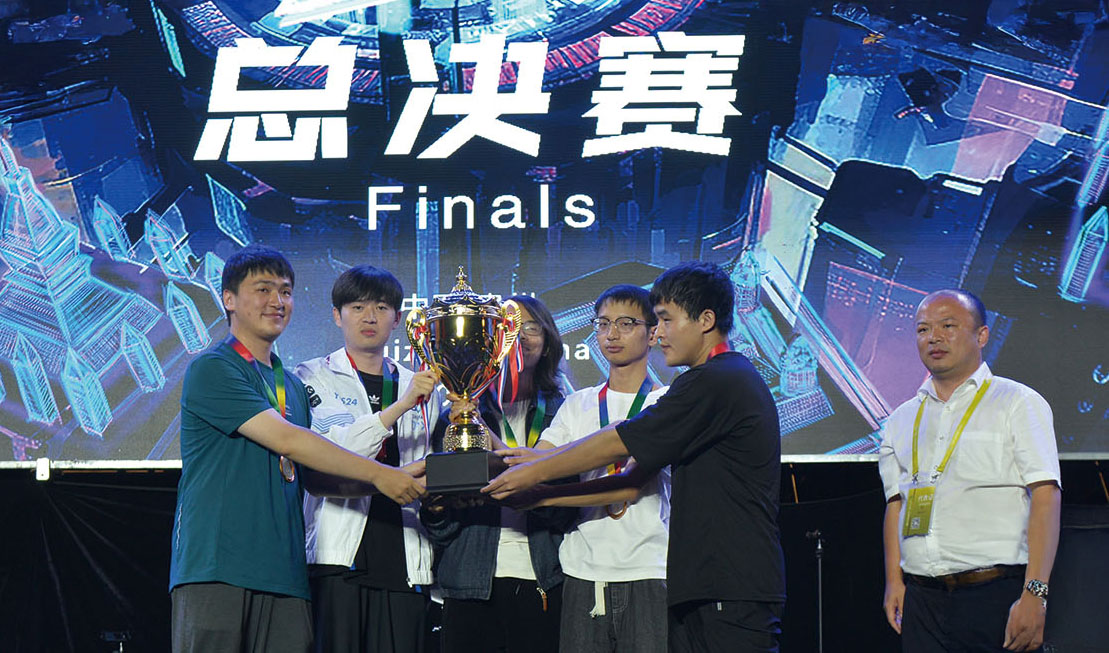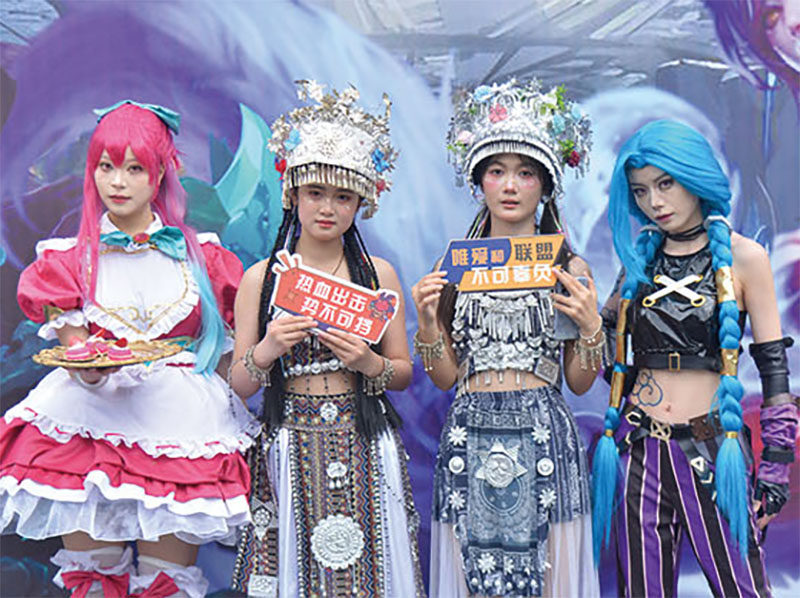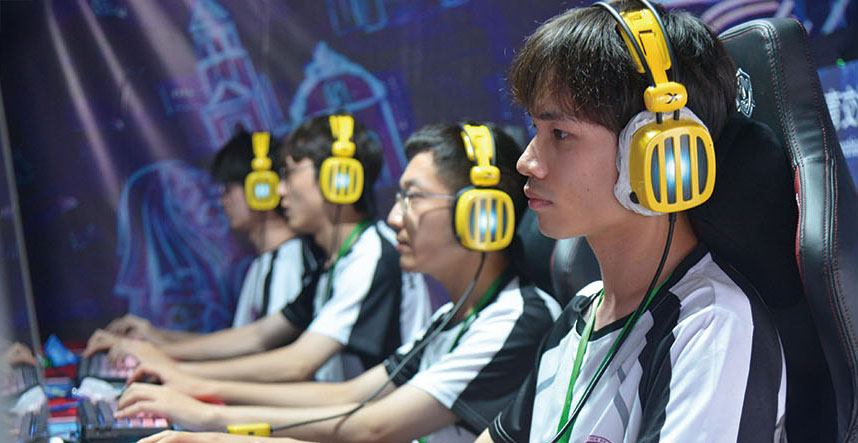E-sports is evolving beyond entertainment into a career and cultural bridge, uniting young players across Asia in a historic setting.

From July 24 to 27, the historic Qingyan Ancient Town in Guizhou buzzed with the rapid clicks of gaming mice and the cheers of college students.
This 600-year-old fortress served as the stage for an e-sports tournament featuring Generation Z players from China, ASEAN countries, Japan, and South Korea, held alongside the Guizhou University E-Sports League series.
As a highlight of the 2025 China-ASEAN Education Cooperation Week, the tournament brought together 23 teams from China, South Korea, and ASEAN countries to compete in the finals.
"While Chinese players often focus on individual skills, South Korean players are known for their exceptional teamwork, clearly defined roles, and precise timing during team fights," said Zan Hao, a PhD student in applied statistics at Yunnan University.
READ MORE: China says ASEAN ties dynamic, fruitful
Despite facing tough competition and contrasting play styles, Zan's team fought hard and ultimately emerged as champions.
Zan's story mirrors the evolution of China's e-sports scene. He started playing video games as a child and began following professional competitions in high school, a time when players would travel across the country on cheap trains, often paying out of pocket just to compete.
Today, e-sports athletes enjoy growing recognition, though old stereotypes still linger.
Zan recalled a moment after the finals when he and his teammates, trophy in hand, hailed a taxi. The driver said, "Video games ruin kids. The government should ban them."
"But things are changing," Zan said. "Many universities now offer e-sports majors. Beyond becoming professional players, more young people are building careers in areas like commentary, refereeing, and other roles in the industry."

Zan's viewpoint is backed by data. Zhao Qiaoqi, head of the Guizhou E-sports Association, pointed out that China now has 500 million registered video game users and an e-sports industry worth 200 billion yuan ($28 billion), growing annually at a rate of 5 to 10 percent.
"E-sports has become China's third-largest sport in terms of livestreaming and rebroadcast viewership, right after soccer and basketball," Zhao said.
With the industry's expansion and growing recognition, Zhao said he has met many young people who aspire to become e-sports stars.
But he emphasized that e-sports is much more than just playing video games — a misunderstanding still common among both young people and their parents.
"Becoming a professional player isn't easy — it involves rigorous training and intense competition," he said.
Hur Jun-ha, a 25-year-old student at Honam University in South Korea, shared a similar perspective.
Growing up in one of the world's leading e-sports nations, Hur believes that early exposure to the gaming industry is a major factor behind South Korea's success in the field.
"Nearly 70 percent of students in South Korea, from elementary school to university, spend their after-school hours at PC bangs (gaming cafes)," he said. "But despite this widespread enthusiasm, making it to the top is like finding a needle in a haystack."
Hur added that South Korea's e-sports scene also benefits from a mature and well-structured training system. At his university, for example, the e-sports program includes four specialized majors, covering areas such as e-sports equipment research, commentary, refereeing, and event planning.

Beyond the screen
Yao Nan, a teacher at Guizhou Open University, is working on a similar initiative in China. He explained that since last year, the university has been collaborating with the Guizhou E-sports Association to develop a national-level platform that integrates the e-sports industry with academic research, education, and hands-on experience.
"China's Ministry of Human Resources and Social Security has officially included e-sports operators and athletes in the national catalog of vocational skills certification," Yao said. "With government support, we also plan to partner with relevant departments to offer professional training for young people."
For Wu Wenyan, a sophomore studying broadcasting at Guizhou Open University and a volunteer at the event, esports used to seem like just a form of entertainment. But being part of the event gave her a broader view of the industry.
"It's more than just a competition," she said. "It's a platform that integrates education, creates job opportunities, and even promotes cultural tourism."
Wu was especially impressed by the event's setting — intense e-sports matches held in an ancient town, where players could visit historic sites during their breaks.
"It's an excellent way for young people to bond over shared interests and connect with different cultures," she said.
Li Hanzhi, a 22-year-old student at Fudan University in Shanghai, participated in the tournament as an organizer, gaining firsthand insight into how the expanding e-sports industry is opening new career paths for young people.
Although he majors in history and public administration, Li has focused his academic research on e-sports. He currently serves as president of Fudan's e-sports club and has organized nearly 40 competitions over the past two years.
ALSO READ: IOC confirms 2025 debut for Olympic Esports Games in Saudi Arabia
"I've been fascinated by the industry since high school," Li said. "I hope to keep working on organizing and planning e-sports events in the future."
For many participants, the event was also a rare opportunity to connect across borders through a shared passion.
Hur noted that while professional tournaments often bring together international players, this was his first time joining an event focused on amateur and college-level competitors.
"Having the chance to come to China and compete with peers from various countries was a truly valuable experience," he said. "I hope that in the future, students pursuing careers in different e-sports fields will have more platforms like this for interaction and growth."
Lei Siqi contributed to this story.
Contact the writer at mengwenjie@i21st.cn


